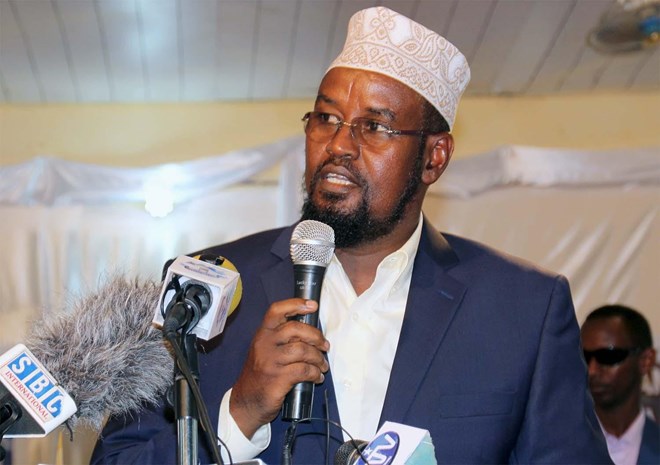Middle East Online
Tuesday June 16, 2020
Somali government recognises Madobe as "interim leader" of semi-autonomous state for two-year mandate, as opposed to four-year mandate set out in Jubaland constitution.

Ahmed Madobe, a former warlord, was re-elected as president of the state in August 2019 in an election boycotted by the federal government
MOGADISHU - The Somali government on Sunday officially recognised the contested leader of the semi-autonomous Jubaland state after months of tensions, however only as "interim leader", a term he promptly rejected.
Ahmed Madobe, a former warlord, was re-elected as president of the state in August 2019 in an election boycotted by the federal government, who backed a loyalist candidate in a parallel election.
Those tensions escalated in March, when heavy fighting broke out near the Kenyan border between Somali troops and Jubaland forces. Kenya accused Somali troops of violating its territorial integrity.
The rival leaders in Jubaland signed a peace pact in April.
"In considering the need to have an administration that is mutually accepted by all the local people, and in order to end the protracted conflicts" the government recognises Madobe as head of the "Jubaland interim administration", said a statement from the Somali president's office.
Mogadishu said this would be a two-year interim mandate, as opposed to the four-year mandate set out in the Jubaland constitution.
"The mandate of the leader of Jubaland expires in four years in accordance with the Jubaland State Constitution therefore, no one can decide the mandate expiration against the favour of the provisions in the constitution," Jubaland's government said in a statement.
Political feuds
The government has invited heads of the various states to Mogadishu next week to discuss national elections due before February 2021.
Somalia has faced criticism from observers for engaging in political feuds with federal states to gain control in the upcoming election, rather than focusing on the fight against Islamist group Al-Shabaab.
The leaders of Somalia and breakaway state Somaliland met Sunday in Djibouti a bid to renew dialogue, with Somaliland calling for a "two-state" process and defending its right to independence.
The meeting took place in Djibouti, chaired by the country's President Ismail Omar Guelleh, and was attended by Ethiopian Prime Minister Abiy Ahmed.
Somaliland declared independence in 1991, and while anarchic southern Somalia has been riven by years of fighting between multiple militia forces and Islamist violence, Somaliland has enjoyed relative peace.
However it has never achieved the international recognition it desires.
Somali analyst Omar Mahmood, of the International Crisis Group, said the "huge tensions" between Mogadishu and its federal states which don't feel consulted, were a major obstacle to the election process.
Somalia had planned to hold its first one-man one-vote election since 1969 - as opposed to a complex system in which special delegates pick lawmakers who then vote for the president.
However given delays in technical aspects such as voter registration, security issues with Al-Shabaab still controlling vast areas, and the tensions with the states, observers see this as increasingly unlikely.
The electoral commission is later this month to present a report to parliament on whether or not such an election can be organised in time.